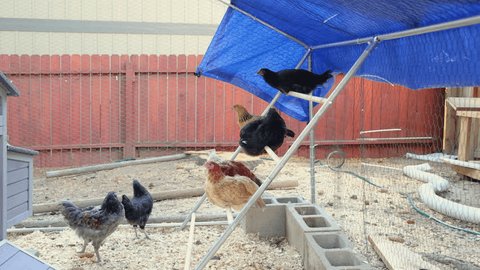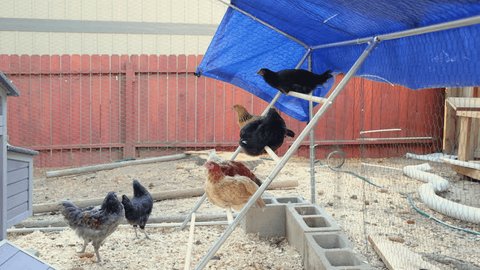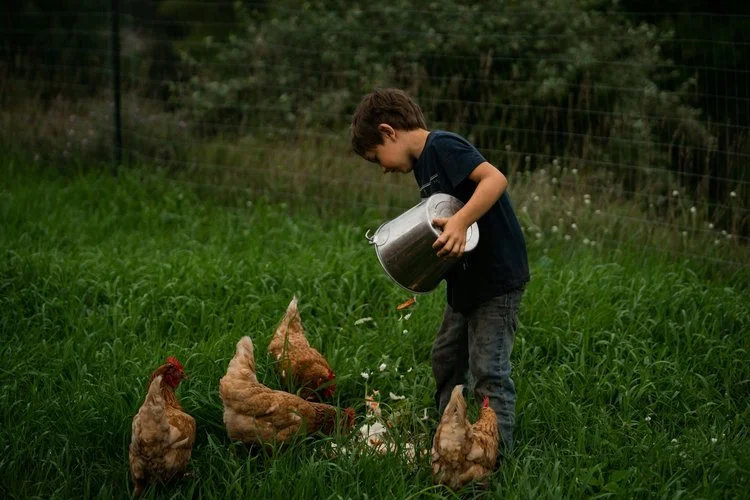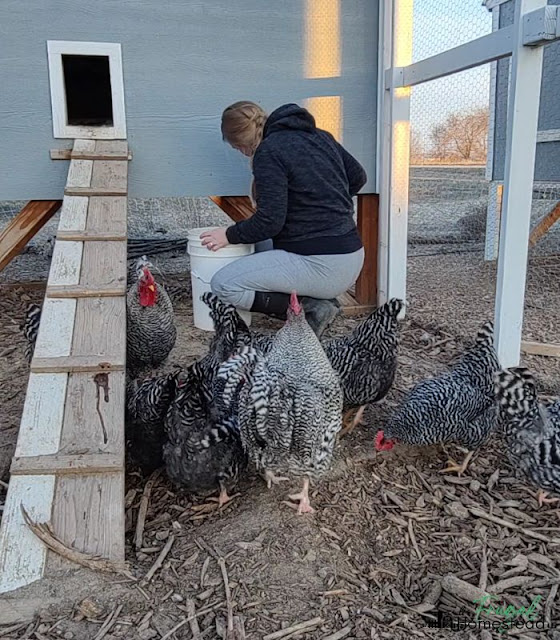
Texas Families Celebrate Backyard Chicken Freedom: SB 47 Brings Fresh Eggs to Your Table!
Imagine stepping into your backyard on a crisp Texas morning, coffee in hand, and collecting a basket of warm, freshly laid eggs. Picture your children learning about the cycle of life, caring for their feathered friends, and understanding where their food comes from. Thanks to the recent passage of Texas Senate Bill 47: The Backyard Chicken Freedom Act, this vision is now a reality for countless families in unincorporated areas across our great state! Here at Better Homes and Harvests, we're thrilled to celebrate this victory for local food, homesteading, and community resilience.
This landmark legislation legalizes backyard chickens in unincorporated parts of Texas, empowering residents to take control of their food supply and connect with nature in a meaningful way. By reducing our reliance on commercial egg production, we can strengthen our local food systems and build more resilient communities.
But with this newfound freedom comes responsibility. SB 47 includes specific guidelines on coop size and setback requirements, and it’s crucial that we all become responsible chicken keepers. This post will guide you through the ins and outs of the new law, offer practical tips for building an affordable and compliant chicken coop, and provide resources for preventing common chicken-related problems.
Understanding Texas Senate Bill 47: The Backyard Chicken Freedom Act
First and foremost, it's vital to understand the specifics of the law. Texas Senate Bill 47 outlines the regulations for keeping backyard chickens in unincorporated areas. This means the law applies to areas not within the city limits of a municipality.
Key Provisions:
- Legalization: Allows residents in unincorporated areas of Texas to keep backyard chickens.
- Coop Size Restrictions: Specifies maximum coop size based on lot size. Pay careful attention to these dimensions to ensure compliance.
- Setback Requirements: Mandates minimum distances between the chicken coop and property lines, as well as dwellings.
- Rooster Restrictions: Many jurisdictions prohibit roosters due to noise concerns. Be sure to check your local regulations!
Click here to read the full text of Texas Senate Bill 47 to review the complete requirements and ensure your setup complies.
Building an Affordable and Compliant Chicken Coop
One of the biggest hurdles to getting started with backyard chickens is the cost of a chicken coop. But don't let that deter you! You can build a fantastic, compliant coop using reclaimed and repurposed materials, saving money and reducing your environmental impact.
Here's how to build a chicken coop in Texas affordably:
- Source Reclaimed Materials: Check local classifieds, construction sites (with permission!), and salvage yards for free or low-cost lumber, plywood, and hardware.
- Design for Compliance: Before you build, carefully review the coop size restrictions outlined in Texas Senate Bill 47. Design your coop to meet those requirements. Factor in enough space for your chickens to roost, nest, and move comfortably.
- Prioritize Functionality: Focus on the essential features: a secure enclosure to protect against predators, a dry and draft-free roosting area, nesting boxes, and easy access for cleaning.
- DIY Plans: Utilize free online chicken coop plans. There are countless resources available. BH&H will add to this list with plans specific to SB 47 regulations very soon.
- Repurpose Items: Get creative! An old dog house, a garden shed, or even a large shipping crate can be transformed into a functional and attractive chicken coop.

For more inspiration, check out these helpful BH&H articles:
- Building a Budget-Friendly Chicken Coop: [Link to BH&H Article] (Placeholder - will add soon)
- Repurposing Materials for Your Homestead: [Link to BH&H Article] (Placeholder - will add soon)
- DIY Chicken Coop Plans: [Link to BH&H Article] (Placeholder - will add soon)
Preventing Common Chicken-Related Problems: A Guide to Responsible Ownership
Backyard chickens can bring immense joy and fresh eggs, but it's essential to address potential problems before they arise. Here's how to be a responsible chicken owner and minimize neighborhood concerns:
- Predator Protection: Texas has its fair share of predators, including coyotes, foxes, raccoons, and hawks. Ensure your coop is securely enclosed with strong wire mesh and a covered top. Consider burying hardware cloth around the perimeter to prevent digging. Lock your chickens up securely at night.
- Rodent Control: Chicken feed can attract rodents. Store feed in airtight containers and clean up any spilled feed promptly. Consider using rodent-proof feeders and keeping the area around the coop clean.
- Odor Management: Proper coop management is crucial for preventing unpleasant odors. Regularly clean the coop, remove soiled bedding, and consider using the deep litter method, which involves adding fresh bedding on top of the old bedding and allowing it to compost in place.
- Noise Control: While chickens aren't generally loud, roosters can be a nuisance. Check your local ordinances regarding rooster ownership. If allowed, consider choosing a quieter breed.
- Waste Management: Chicken manure is a valuable fertilizer! Compost it properly to eliminate odors and create a nutrient-rich soil amendment for your garden.
 .jpg)
.jpg)
Useful Resources:
- Texas A&M AgriLife Extension: [Link to Texas A&M AgriLife Extension Poultry Page] (Placeholder - will add soon)
- Backyard Chickens 101: [Link to a relevant reputable resource] (Placeholder - will add soon)
Building Community and Sharing Experiences
The passage of Texas Senate Bill 47 marks a new chapter for homesteading and local food in Texas. Let’s build a supportive community of backyard chicken enthusiasts!
We encourage you to share your experiences, successes, challenges, and questions in the comments section below. Have you already built your coop? What breed of chickens are you raising? What challenges have you faced, and how have you overcome them? Your insights can help other Texas families embark on their backyard chicken adventures!
A Few Words About Potential Frustrations
We understand that some experienced homesteaders might feel restricted by the coop size limitations outlined in Texas Senate Bill 47. While we acknowledge these concerns, it's important to remember that this bill represents a significant step forward for backyard chicken ownership in Texas. It’s a foundation we can build upon to advocate for more flexible regulations in the future. For now, focusing on responsible ownership and compliance is key to maintaining this privilege and demonstrating the benefits of local food production.
Embracing Community Resilience Through Local Food
Texas Senate Bill 47 empowers us to become more self-sufficient and strengthens our local food systems. By raising backyard chickens, we're not only enjoying fresh, delicious eggs but also fostering a deeper connection to our food source and building more resilient communities. Let’s embrace this opportunity to create a more sustainable and secure future for ourselves and generations to come.
Ready to start your backyard chicken journey? Sign up for the Better Homes and Harvests newsletter for more tips on building a resilient homestead and stay updated on all things homesteading in Texas!